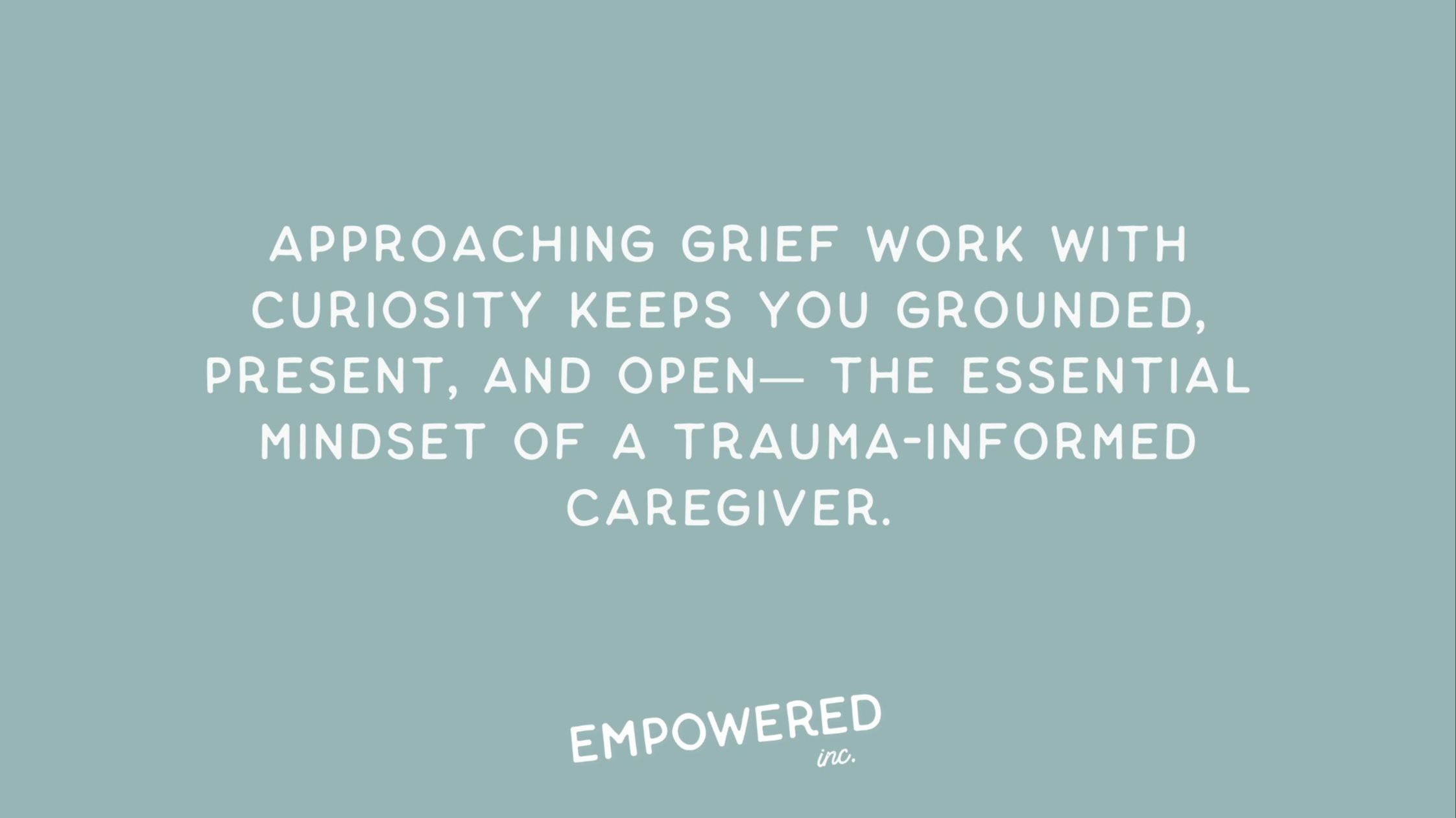Top 5 mistakes new grief supporters make and how to avoid them
May 01, 2025
Start strong in your grief work: what every new grief specialists should know.
“Real understanding is a creative mixture of certainty and unknowing. The trick is to know when you don’t understand.” ~ Thomas Moore
You’ve completed your training as a therapist, grief specialist, or caregiver. You've read the books, absorbed the theories, and sat through the lectures on trauma-informed care, grief models, and emotional support strategies.
Now you're stepping into real-life grief support — and suddenly, all that knowledge feels far away.
You're not alone.
The fear of saying the “wrong thing” or “messing it up” is real — and it’s a common hurdle for many professionals. Let’s explore the top 5 mistakes that new grief supporters make — and how to avoid them.
Top 5 Mistakes Grief Supporters Make & How to Avoid Them
-
Listen, embrace the awkward.
You just finished your training and you're eager to delve into your education. And while you have a vast repertoire of skills and tools, remember you don’t have to say anything at all.
New grief supporters often feel pressured to say something “meaningful.” But sometimes, the best gift is silence.
Grief doesn’t need fixing— it needs emotional support. Resist the urge to fill the silence with a story or advice. Your job is to hold space and listen. It might feel awkward at first, but trust: it’s powerful.
-
Lead with Curiosity, Not Assumptions.
You can’t fully understand someone else’s grief — and that’s okay. Everyone mourns in their own way. Having this understanding allows you to lead with curiosity.
As grief educator Dr. Alan D. Wolfelt explains:
“Curiosity for the companion is about being willing to enter into and learn about the mystery of grief while recognizing you do not and cannot fully understand someone else’s experience… [It] is not ignorance but the capacity to see without assumptions.” (After Talk blog)
Approaching grief work with curiosity keeps you grounded, present, and open— the essential mindset of a trauma-informed caregiver.
-
Comparison, it doesn’t serve you well.
We are our own worst critics, but leave self criticism at the door. You're going to look around and think, "They’re doing it better than me." That’s normal. But it’s not helpful.
Instead of judging yourself, reflect with compassion. Use every session and interaction as a chance to grow. Comparison stifles connection — and your ability to be present for someone else.
“All of us are interested in things outside of our stewardships, and we should be, but the most important way to do anything about them is to magnify our own stewardships. When you focus on your own responsibility, you become relatively unconcerned with other peoples stewardships...The highest form of influence is to be a model, not a critic; a light, not a judge.”
― Stephen R. Covey (GoodReads)
-
Isolation, find your people.
Grief work is heart work—don’t do it alone. Seek mentorship, build community, and surround yourself with others in the field of mental health and caregiving.
Programs like Care for Caregivers (CFC) in U.S. healthcare systems show how valuable peer training and support can be. One study noted:
“Participants appreciated the interactive elements... and felt better equipped to recognize distress, listen actively, and set boundaries” (Metzler et al., 2023, National Library of Medicine).
Whether it's a local peer group or an online community, connection prevents burnout.
-
Boundaries, protect your wellbeing.
As a caregiver or grief specialist, your own wellbeing is non-negotiable. You can’t pour from an empty cup. According to the Canadian Centre for Caregiving Excellence: “One in four caregivers report fair or poor mental health. 47% feel tired, 44% anxious, and 37% overwhelmed.”
Prioritize routines that help you disconnect from work and reconnect with yourself. Boundaries are not barriers — they’re essential tools for sustainable, trauma-informed care.
Bottom line, you’re going to make mistakes. That’s part of being human — and part of learning. What matters most is that you show up with empathy, curiosity, and a willingness to learn.
Grief support isn’t a checklist. It’s a relationship and continuous work. The best thing you can offer is not perfection — it’s presence.
Ready to Grow as a Grief Supporter?
Whether you're just starting out or looking to deepen your skills, you don’t have to do this work alone.
Join our newsletter for practical tools, trauma-informed insights, and inspiration for caregivers and therapeutic professionals — delivered straight to your inbox.
👉 [Sign up here] to stay connected and supported in your grief work journey.
Or explore our available courses designed to help you grow with confidence and heart.
📅 [View courses]
You’re doing meaningful work 💛
Empowering Updates
Subscribe to get the BEST Empowered updates delivered to your inbox:
We don't like spam either. You can unsubscribe at any time.



